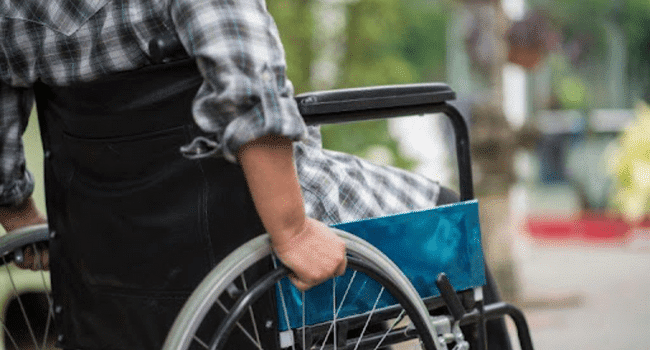Table of Contents
According to the law, negligence refers to a failure to fulfill the duty of care that results in damage or harm. Disability caused by negligence refers to a condition or impairment that results from the failure of someone, such as a healthcare provider, to provide proper care or treatment.
Negligence can lead to physical or mental disabilities that impact an individual’s ability to perform daily activities and live a normal life. These disabilities can be temporary or permanent and can significantly impact the individual’s quality of life and their ability to work and earn a living.
For example, doctors treat patients as part of their profession, and patients feel more at ease knowing they are in the hands of a professional. Doctors are responsible for ensuring that they provide proper care to their patients and preventing any complications that could result in disability. However, if the doctor is negligent and a disability occurs, the patient may seek compensation through legal means, such as getting legal help from a catastrophic injury lawyer.
Tips for dealing with disability caused by negligence
Dealing with a disability caused by negligence can be a challenging and emotional process. Here are some steps you can take to help you cope:
Ensure you are alright.
When dealing with a disability caused by negligence, it’s important to take care of yourself both physically and emotionally. “Make sure you are alright” is a tip that emphasizes the need to prioritize your own well-being in the midst of a difficult situation. Here are some ways you can implement this tip:
- Prioritize self-care: Take time to care for yourself physically and emotionally. This may include eating well, getting enough sleep, engaging in regular exercise or physical therapy, and seeking support from friends, family, or a professional counselor.
- Focus on your strengths: While it’s important to acknowledge and address the challenges you’re facing, it’s also helpful to focus on your strengths and abilities. This can help you maintain a positive outlook and find ways to adapt to your disability.
- Stay informed: Learn as much as you can about your condition, including available treatments and resources. This can help you make informed decisions about your care and advocate for your needs.
- Set realistic goals: Setting realistic goals for your recovery and adjustment to your disability can help you stay motivated and focused on making progress.
- Advocate for your rights: It’s essential to understand your legal rights and to advocate for them as needed. This may include seeking legal representation, filing a compensation claim, or working with advocacy organizations to promote awareness and change.
Gather evidence
Gathering evidence is essential in dealing with a disability caused by negligence. Evidence can help you establish the cause of your disability and support your claim for compensation. Here are some ways you can gather evidence:
- Medical records: Keep copies of all medical records related to your disability, including diagnoses, treatment plans, and prescriptions. These records can help establish the extent and causes of your injuries.
- Witness statements: If there were witnesses to the incident that caused your disability, gather their contact information and ask them to provide a written statement about what they saw.
- Photos and videos: If possible, take photos or videos of the scene of the incident and any injuries or damage. These can provide visual evidence to support your claim.
- Police report: If law enforcement responded to the incident, request a copy of the police report, which can provide additional details and documentation.
- Expert opinions: Depending on the circumstances of your case, you may need to gather opinions from medical experts, accident reconstruction specialists, or other professionals who can provide insight into the cause of your disability.
Hire a lawyer
When dealing with a disability caused by negligence, it is important to consider hiring a lawyer specializing in personal injury cases. This can help you navigate the legal process and protect your rights. A lawyer can assist you in several ways. Firstly, they can review the details of your situation to determine if you have a valid claim for compensation. They can then investigate the incident that caused your disability by gathering evidence and interviewing witnesses.
Additionally, a lawyer can negotiate with the other party or their insurance company to reach a settlement that compensates you for your losses, such as medical expenses, lost wages, and pain and suffering. If a settlement cannot be reached, your lawyer can represent you in court and present your case to a judge or jury. Throughout the legal process, your lawyer can also advocate for your rights and ensure that you are treated fairly and with respect.
Read More on KulFiy
Do You Need a Personal Injury Lawyer for Your Case?
The Grocer’s Woes: Understanding Your Rights After an Injury at HEB
